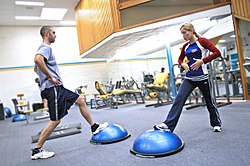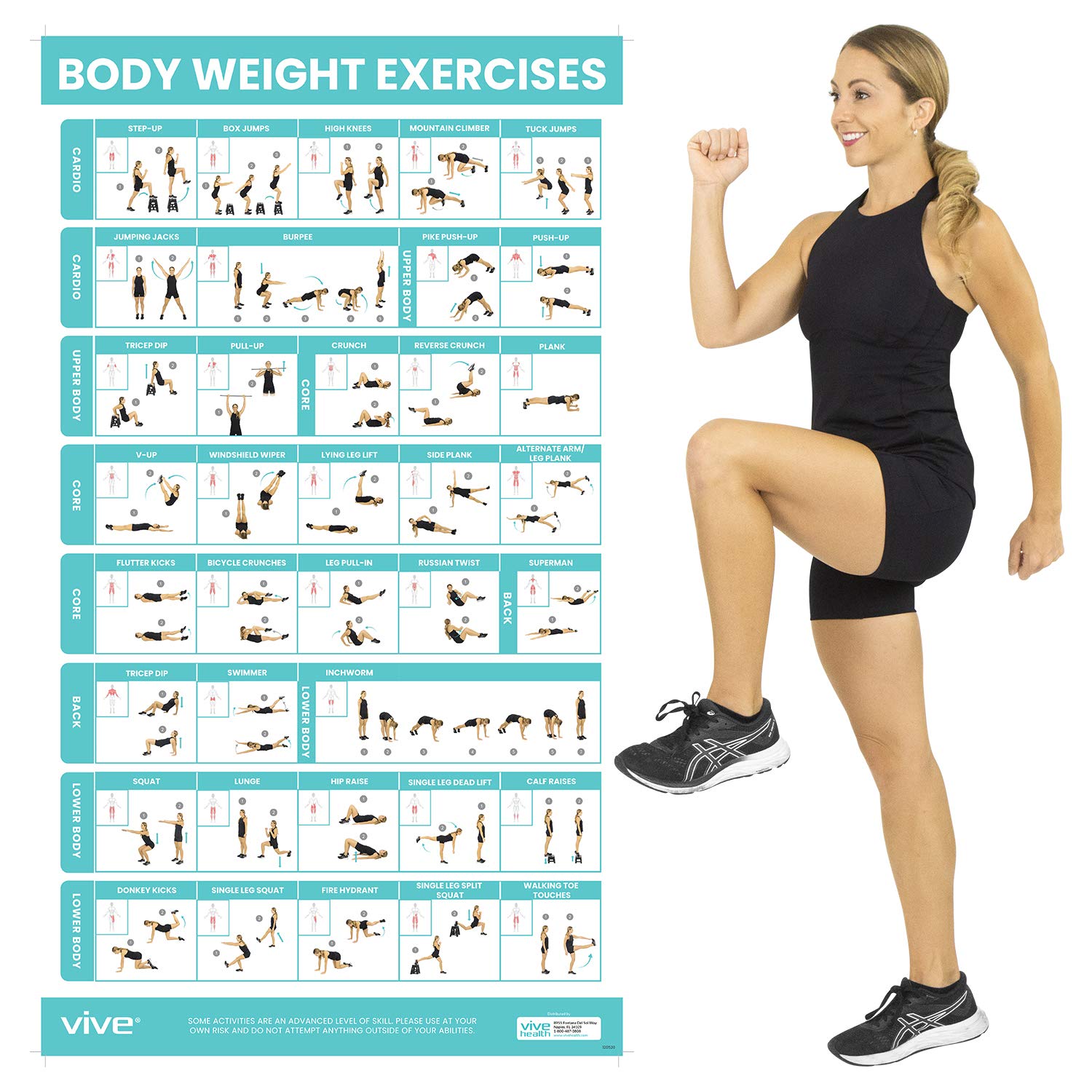
This age-old question is hard to answer because it depends on the goals you have and your own health. Exercise as much you can to keep healthy but also make sure you do not overtrain.
How many days should I workout a week?
Everyone has a different answer, but the general rule is to exercise four days per week. This gives you enough time each week to complete a full-body exercise and still allow your body some time to rest.
Start with shorter workouts of less than one hour if you are new to exercising or have not worked out for a long time. This will help build your strength so you don't get burned out when you move on to longer workouts.

Once you get stronger, you may want to add two or three minutes more per session. This will allow you more time to do exercises per session.
What if you have an intense workout?
If you plan to do a lot of intense exercises, make sure you take a break so that you can stretch your muscles and recover. The American Council on Exercise advises that you take at least one short break during your workout every day. It's also good to take an entire day off each week to allow your muscles time to recover.
What if I Have a Moderately Intense Workout?
Spending at least one hour in a gym is recommended for moderately intense workouts. This is enough time to get a good full-body strength-training workout in each week, and also give your body enough time to rest and recover.
How Often Should I Perform a Full-Body Workout?
To gain muscle, it's best to do a total-body workout two times a week. It doesn't necessarily have to take two hours, but the workout should target all major muscle groups.

NF Coach Staci Ardison does her meal prep on Sundays, and she's done her workouts at night or in the afternoon because that's when she's usually most able to stick to her schedule.
You should also give yourself a day off between workouts, especially if it's your first time working out. So, your body can relax and recover in between sessions.
How Often Should I Workout for Weight Loss?
If your goal is to lose weight, it's important to make sure you're getting plenty of cardio each week. The Centers for Disease Control and Prevention recommends doing 30 minutes of cardio at least three times a week.
FAQ
Do I need to get warm before going out?
Warming up prior to an activity helps reduce muscle soreness. It also improves performance. There are many methods you can use to warm up, including running, jumping rope and stretching. You should start slow and gradually increase your speed and intensity.
Is exercise good for me?
Yes. Regular exercise is a great way to lose weight. Exercise also helps keep your metabolism up, so you continue to burn calories even when you aren't exercising.
Does exercise cause me to gain weight?
Not at all. In fact, exercise helps you to maintain your current weight. Regular exercise will help you build muscle and boost your metabolism. This will allow you to burn more calories every day. This means your body won’t store as much weight.
Can I eat during my exercise?
Yes. Yes. Low-calorie snacks like watermelon and carrots, celery apples, bananas, grapes, celery, celery, celery, celery, celery, apple, bananas, and carrots are best. These foods are rich in nutrients that will help you work out better.
Can I exercise after eating?
It depends on the type and intensity of your exercise. Avoid strenuous exercise after meals as it can cause stomach cramps. Focus on light aerobic activities such as biking or brisk walking.
How can I get started in fitness?
Start small. Try taking 10 minutes each day to walk around the block. This will teach you the basics of movement and give your muscles time for adaptation. Once you are proficient in this type of exercise, add more steps and routines to your day.
Statistics
- Adolescent girls were less active than adolescent boys, with 85% vs. 78% not meeting WHO recommendations of at least 60 minutes of moderate to vigorous intensity physical activity per day. (who.int)
- One study showed that adults who watch more than 4 hours of television daily had an 80% higher risk of death from cardiovascular disease. (heart.org)
- According to the Centers for Disease Control and Prevention, chronic diseases cause 7 out of 10 deaths in the U.S., and treating chronic diseases accounts for 86% of U.S. healthcare costs. (mana.md)
- An estimated 110,000 deaths per year could be prevented (cdc.gov)
External Links
How To
How to keep fit while pregnant
Your body goes through many changes when you get pregnant. Your metabolism slows down and your body eats less as you have a baby. Lack of sleep could make you feel sick. There are many ways to keep your health in check while still enjoying this wonderful time of your life.
First, consult your doctor before you begin any exercise program. They can tell you what exercises you should avoid and which ones are safe for you to do. Second, make sure you eat well throughout your pregnancy. This includes eating plenty of protein, fiber, and iron. Third, you should drink lots of fluids. You lose a lot of fluids through sweating, so it is especially important to drink water during exercise. Take care of your feet. Make sure they're always dry and wear shoes that support them. If you're having morning sickness, make sure you eat something small like crackers or toast before getting out of bed. Otherwise, you could end up feeling nauseous.
-
Healthy eating is key. A healthy diet is crucial throughout the entire pregnancy.
-
Get active. At least 30 minutes of exercise daily
-
Maintain a Healthy Weight. Reduce the amount of food you eat and eat snacks less often can help you lose weight.
-
Get Enough Sleep. Get at least 7-9 hours sleep each night.
-
Manage Stress. Learn relaxation techniques.
-
Avoid Alcohol. It can cause miscarriage or birth defects.
-
Be gentle with yourself. Be gentle with yourself.
-
Take care of your self. It is important to have someone keep an eye on you whenever you feel the need.
-
Relax. Do the things that make your heart happy.